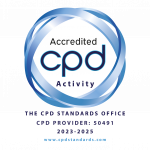Neurodiversity is the norm within Hospitality
Neurodiversity is the norm within Hospitality
It’s believed a higher-than-average proportion of the Hospitality Industry is Neurodiverse. Why is this and how can we better support a range of learning styles?
The scale of Neurodiversity in UK
It’s easy to expect others to see the world through the same lens as you. However, everyone has their own unique ways of processing information and experience of the world differently. According to ADHD Aware, 15% of people in the UK are diagnosed with some form of Neurodiversity, this number could well be much larger for those who have not been assessed or incorrectly diagnosed. Neurodivergent types include ADHD, Dyslexia, Dyspraxia and Autism. We all, in fact, sit somewhere on the spectrum to varying degrees as a “normal”, neurotypical mind is difficult to define.
Neurodiversity in Hospitality
For many Neurodiverse individuals, Hospitality is a great environment where many can thrive. Along with Sports, Music and the Arts, Hospitality is one of the top 10 career choices for those with dyslexia and ADHD. Businesses are now starting to recognise this and are campaigning to attract a more diverse workforce. According to Wie-men Ho’s article in Big Hospitality: Why restaurants need to take Neurodiversity more seriously (December 2022), businesses are actively recruiting diverse workforces due to growing evidence that a diverse workforce contributes to improved performance.
With gifts such as high levels of creativity, empathy, and a capacity to learn huge amounts of information through visual and practical learning, in hospitality individuals can quickly progress and gain qualifications within the workplace, for example, through apprenticeship and compliance courses.
Hospitality offers an environment well suited to neurodiverse gifts due to its hands-on, fast-moving nature. Hospitality attracts like-minded individuals with learning styles who often go on to be successful due to less emphasis on numeracy and written communication. Without these barriers to their growth, their exceptional creativity and practical skills allow them to thrive. This is perhaps why we see a large proportion of Neurodiversity within hospitality.
 Champions and Success Stories
Champions and Success Stories
There are many famous neurodiverse chefs and entrepreneurs within the industry including Marco Pierre White, Jamie Oliver, Andrew Dornenburg, James Martin, Danny Boome and Adam Dickson. Due to the stigma associated with conditions such as Dyslexia and ADHD, there may be many more within the industry. Fear of stereotyping or the stigma attached to neurodiversity prevents many employees from disclosing their condition. Not wanting to be labelled as “stupid”, neurodiverse individuals find other ways to compensate when completing tasks they struggle with instead. According to Nancy Doyle’s article in Forbes (May 2022), part of the problem is that neurodiversity is a hidden problem. Employees choose not to disclose their condition until they come up against barriers and even then, they may take steps to disguise or compensate their difficulties for fear of stigma and prejudice against their condition.
Breaking Barriers
By inventing alternative strategies, it is believed this is how the neurodiverse develop strengths in other areas. In hospitality, we celebrate highly skilled and specialized professionals for their culinary talent and their emotional and social intelligence, rather than completing “secretary work”. However, for managers and senior leaders with conditions such as dyslexia, they may discreetly be putting in extra hours to complete paperwork or delegating it to their team, leading to mental health issues and burnout. In my personal experience, as someone with dyslexia, I remember routinely staying after hours as a manager to complete paperwork and emails that took me so much longer than other colleagues to complete. I was embarrassed to admit this, so never asked for help for fear of losing my development opportunity.
Reducing stigma and having open conversations can help by accommodating individuals’ different learning styles, allowing them to better focus on their strengths rather than holding them back. As business leaders, it’s crucial we remain open-minded to various learning methods that support our people. After all, if you work in the hospitality industry, the chances are that you are already surrounded by many examples of successful professionals with a neurodiverse condition, that you are simply unaware of.
If you would like to learn more about how to support neurodiversity within your workplace, please take a look at our Supporting Neurodiversity within Hospitality blog.
For more resources, or if you would like to get in touch, please see the links below.
Anna Kirwan-Boyle, Learning and Development Specialist
Resources
https://www.bighospitality.co.uk/Article/2022/12/15/neurodiversity-in-restaurants-advice
https://adhdaware.org.uk/what-is-adhd/neurodiversity-and-other-conditions/


